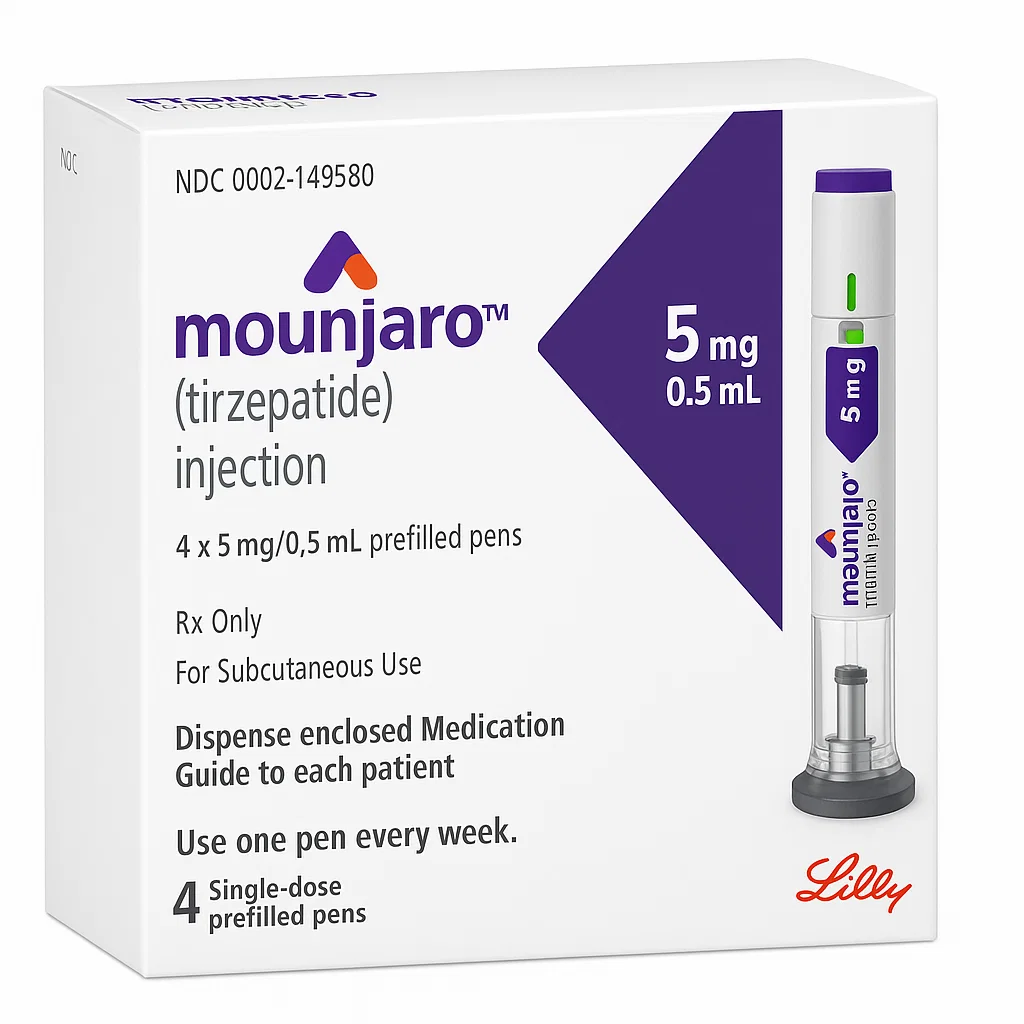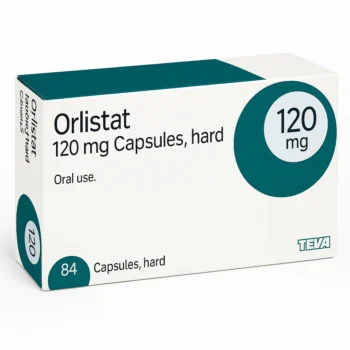What Are Mounjaro Injections?
Mounjaro is a once-weekly prescription injection that treats type 2 diabetes and supports weight loss. Each dose contains tirzepatide, a dual-action medicine that regulates blood sugar and reduces appetite. Specifically, it suits adults living with obesity (BMI of 30 or more) or those classed as overweight (BMI of 27 or more) with a weight-related health condition like high blood pressure or type 2 diabetes.
What Is Mounjaro Used For?
Doctors prescribe Mounjaro injections to help:
— Control blood sugar in adults with type 2 diabetes when lifestyle changes alone don’t work
— Manage weight in adults with a BMI of 30+, or 27+ with conditions like high cholesterol or sleep apnoea
Patients use it alongside a healthy diet and regular exercise to improve long-term health and overall wellbeing.
How Do Mounjaro Injections Work?
Mounjaro contains tirzepatide, which mimics the effects of two natural hormones—GLP-1 and GIP. These hormones help manage blood sugar and appetite. Mounjaro:
— Triggers insulin release when blood sugar levels are high
— Lowers sugar production by the liver
— Slows digestion, helping you feel fuller for longer and curbing appetite
This dual action improves blood sugar control and supports long-term weight loss.
How Should Mounjaro Be Taken?
Mounjaro comes as a weekly injection under the skin. Here’s how to take it:
— Begin with 2.5 mg once a week for the first 4 weeks
— Step up to 5 mg weekly as your maintenance dose
— Increase in 2.5 mg intervals every 4+ weeks if needed (up to a max of 15 mg)
— Inject into your stomach, thigh, or upper arm—rotate the injection site each time
Stick to the same day each week to maintain consistency.
Are There Any Side Effects?
Like all medicines, Mounjaro can cause side effects—though not everyone experiences them. Most are mild and temporary.
Common side effects:
— Nausea
— Diarrhoea
— Reduced appetite
— Constipation
Uncommon or rare side effects:
— Inflammation of the pancreas (pancreatitis)
— Gallbladder problems, including gallstones
— Kidney issues, especially in those with dehydration
Contact your GP if symptoms become severe or don’t go away.
Who Should Avoid Mounjaro?
Not everyone can take Mounjaro. Avoid this treatment if:
— Type 1 diabetes has been diagnosed
— Pregnancy or breastfeeding is expected
— You have serious digestive conditions like gastroparesis
— You have an allergy to tirzepatide or any ingredient listed
— You’re under 18
Always check with a healthcare professional before starting treatment.
How Should Mounjaro Be Stored?
To keep your injections safe and effective:
— Store pens in the fridge between 2°C and 8°C
— Can be kept at room temperature (up to 30°C) for a maximum of 21 days
— Protect from light and never freeze
— Keep out of sight and reach of children
Always check the expiry date before use.


